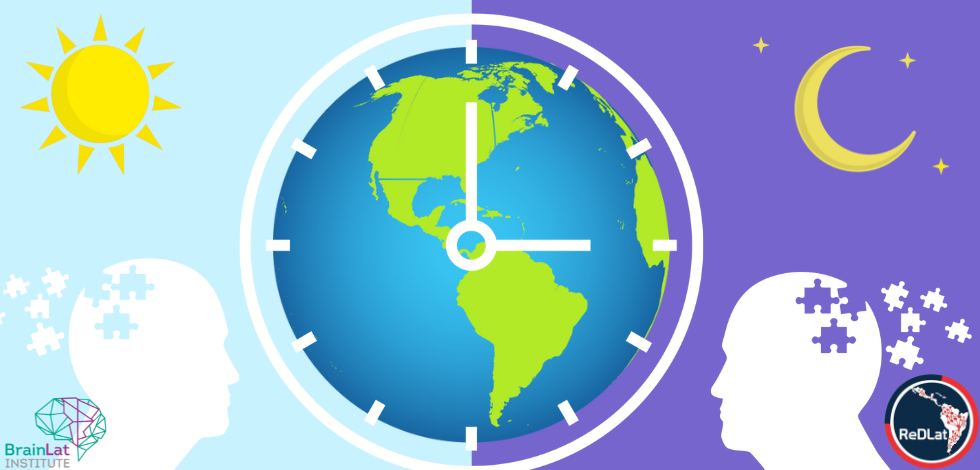Understanding the natural rhythms of our body and mind and their impact on brain health, including dementia, is essential today. Like other living beings, humans respond to changes in the environment, adjusting their biological rhythms to light and the seasons. A key example is the «circadian cycle«, which regulates vital functions such as wakefulness, gastrointestinal activity, and physiological processes throughout the day. While genetic factors play a role, exposure to light, altered by habits and electronic devices, plays a crucial role. With the concerning increase in neurodegenerative diseases, such as Alzheimer’s, in Latin America and worldwide, it is crucial to understand how these alterations affect brain health.
To advance the understanding of these effects, RedLat has obtained funding from the National Institute of Aging of the National Institutes of Health. This supports the project «Circadian disturbance and dementia in Latin America» (code R01AG083799), with a budget of over $3.6 million and more than 2000 anticipated participants. Project leadership includes Kun Hu from Massachusetts General Hospital and Agustín Ibañez, director of BrainLat and Trinity College in Dublin, along with distinguished researchers from RedLat, such as Claudia Durán-Aniotz (co director in BrainLat), Diana Matallana, Adolfo García, María Isabel Behrens, Andrea Slachevsky, and Martín Bruno.
This study is distinguished by its non-intrusive approach, using actigraphy to analyze participants’ sleep and behavior. Contextual data such as gender, age, socioeconomic status, genetic predisposition, and brain activity are considered, analyzed alongside actigraphy using techniques like Deep Learning. This allows for a deep understanding of the complex interactions between biological, social, and behavioral factors. These analyses seek to describe the relationships between the various factors studied and identify predictive biomarkers for the development of diseases in a context closer to our reality, thus addressing critical challenges in reducing the progression of these conditions.

